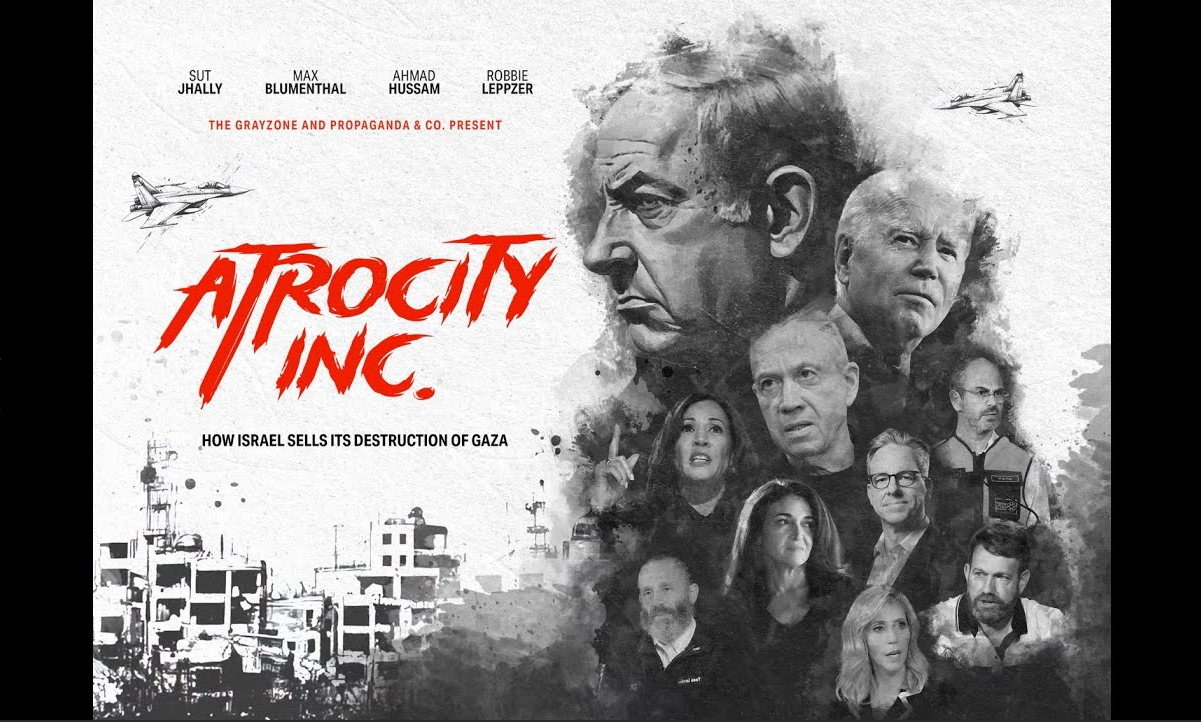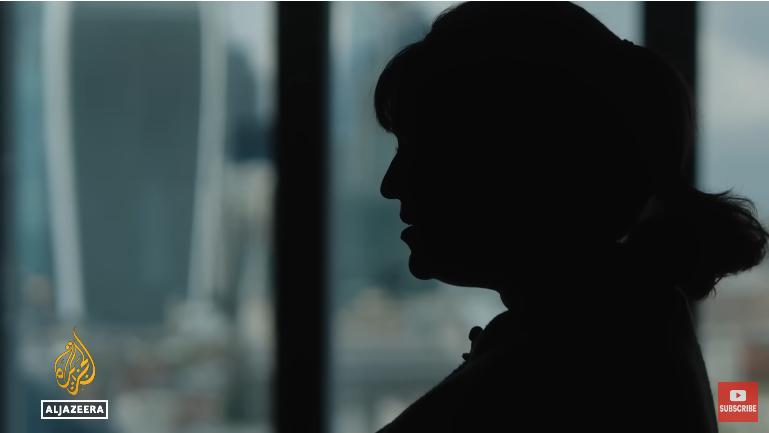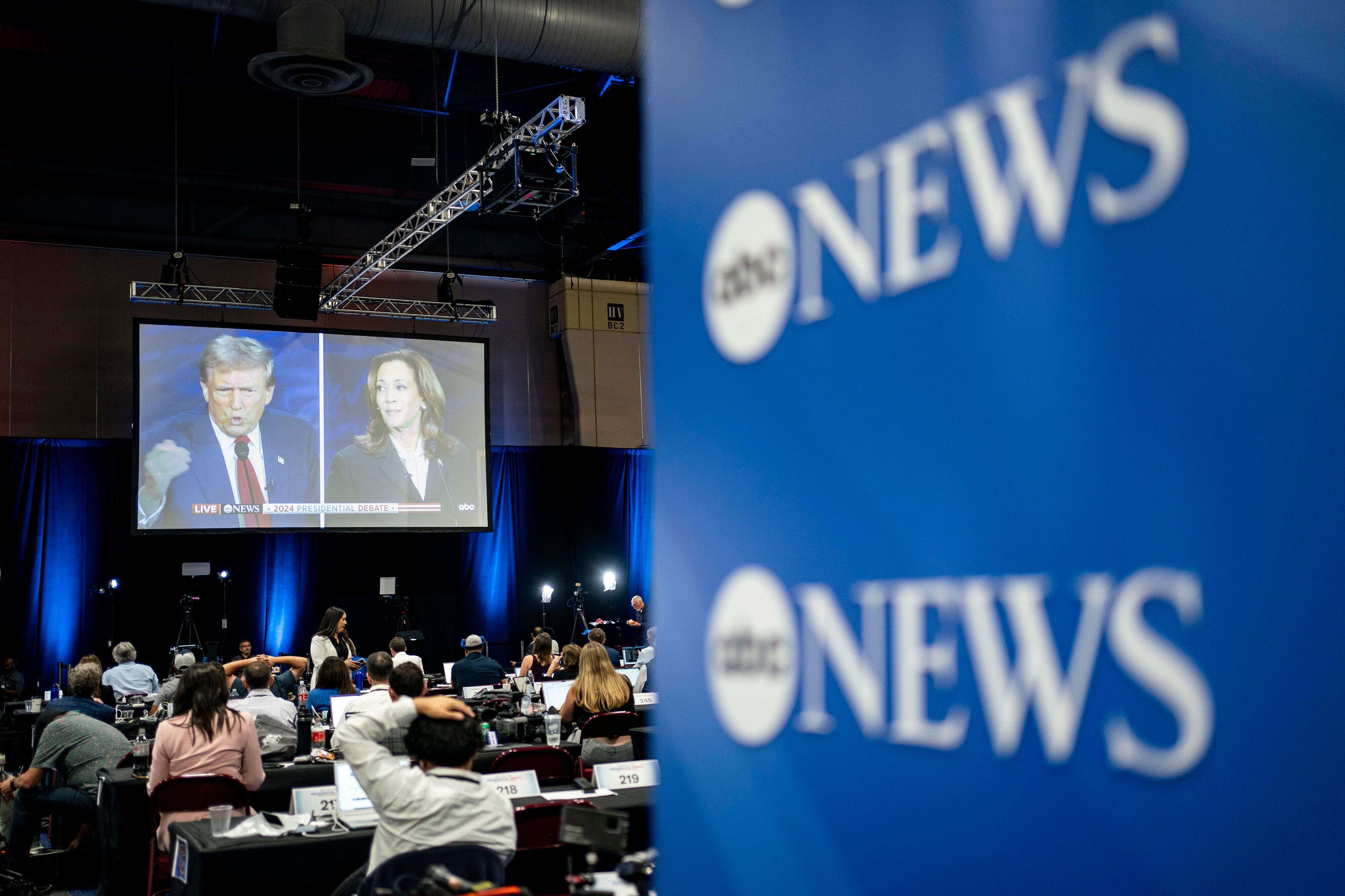Canadian mainstream media manufactures consent to support Israel through biased language, withholding historical context, and conflating any criticism of the Israeli state with antisemitism. When the Canadian mainstream media covers the question of Palestine, they usually frame it as a religious issue and withhold the historical and socio-political context.
In the last 19 months, the mainstream Western media have done little to challenge Israel’s genocide that has killed over 61,709 Palestinians and injured at least 125,834.
Emboldened by the alliance between the U.S and Israel, Canadian mainstream media have continued to dutifully manufacture consent to support and defend Israel through biased language that removes the mention of the word “Palestine” or the word “genocide” from their reporting, withholding historical context that situates Palestine as the ancestral lands for Palestinians through misleading terminology, referring to the ongoing genocide as a “conflict,” and conflating any criticism of Israeli state with antisemitism. Moreso, when the Canadian mainstream media covers instances of anti-Palestinian hate crimes or the Palestinian right of return, they usually frame them as religious issues and withhold the historical and socio-political context.
Lack of Historical and Geo-Political Acuity
Part of the problem, according to Shenaz Kermalli, journalism instructor at Toronto Metropolitan University, is that Canadian journalists lack accurate historical or political knowledge of global issues. “I feel, reporters lean more on simplified narratives that fit neatly into their preconceived or pre-existing Western paradigms and Orientalist stereotypes that they hold of Palestinians,” says Kermalli, who is also a freelance journalist. “Canadian media is incompetent and has little knowledge of geopolitics or how to cover international affairs. The entire post-9/11 era has been marred with the pattern where the Canadian mainstream media reports on international stories with a good guy versus a bad guy mentality. There has been no growth, evolution of training in Canadian media, and they have shut down the foreign desks,” says a source from Toronto Star.
Kermalli also says that when journalists highlight religion over the historical and political roots, they sideline historical facts such as British colonialism, the Nakba, land dispossession, settler colonialism and apartheid, thereby removing accountability from the political actors involved. While anti-Palestinian racism (APR) and Islamophobia have similar roots, embedded in the Western Orientalist imagination of Arabs and Muslims as barbaric, deceitful, and inherently violent, framing Palestine exclusively under the banner of Islamophobia conceals more than it reveals the core of the issue. Kermalli says, “if the struggle (for Palestinian liberation) is seen only as a religious issue, then calls for justice and self-determination or the right of return are often dismissed as sectarian zealotry rather than legitimate demands of a people resisting occupation and displacement.” Moreover, orientalism manifests in dehumanizing language about Palestinians as we have seen from Israeli officials, such as “children of darkness” and “human animals,” which is used to justify the mass killing of Palestinian civilians, irrespective of religious affiliation.
Overwhelmingly, Canadian media alongside provincial and federal politicians still frame Palestine and Israel as a religious issue and discuss antisemitism and Islamophobia extensively without talking about APR. To differentiate the latter from the former, the Arab Canadian Lawyers Association defined APR as “a form of anti-Arab racism that silences, excludes, erases, stereotypes, defames or dehumanises Palestinians or their narratives.” Over the past two years, there have been many instances of APR in Canada in the areas of culture, language, activism, education, journalism, art, and public protest, such as efforts to ban the kuffiyeh, speech suppression, job terminations, and defamation among other censorship tactics.

Additionally, we have also seen features of APR in Canadian media such as Nakba denial, justifying violence against Palestinians, and failing to acknowledge Palestinians as an Indigenous people with a collective identity. This has affected people’s perceptions of mainstream media.
“Legacy media doesn’t have a lot of credibility left anymore because people can see what is happening in the palms of their hands versus what is delivered to them in the news,” Samira Moheyddin, a former CBC producer, and currently the editor in chief and founder of On the Line Media (OTL).
Al Jazeera Review of Journalism also learned, inside the Canadian newsrooms there is a deliberate obfuscation of the Israeli settler colonial context. When reporting on the genocide, they choose to begin history on October 7, 2023 instead of the Nakba in 1948.
“Legacy media doesn’t have a lot of credibility left anymore because people can see what is happening in the palms of their hands versus what is delivered to them in the news”
Samira Moheyddin, a former CBC producer, and currently the editor in chief and founder of On the Line Media (OTL)
At the Toronto Star, one of the main liberal progressive newspapers, wrangles itself by not covering Palestine rather than providing a bad coverage. “The bar is very low, but at least CBC and the Globe and Mail would still be able to report on the bare minimum, the Star censors by delay,” says a veteran journalist. At the Star, the censorship has not stopped both within the newsroom and when accepting pitches.
Internally, the Star has created a culture of silence, says the source. “If we are using a wired copy from AP and adding contextually relevant updates, the editor would take those updates out and just run with the wired news story.” When accepting pitches from external contributors, the Star censors by delay.
Even when the facts are verifiable, the editor would surgically edit the story, which goes on for a few weeks, and once the contributor pushes back– the publication would pay out the journalist for their time and foregoe the story.” In other cases, the publication would not even acknowledge receiving a pitch.
In many mainstream newsrooms, when journalists wanted to take collective action by forming a walk-out or a byline strike (to rescind their bylines for a week), senior veterans would simmer the building momentum by advising them to have internal consultations with the management.
The Canadian mainstream media brazenly erases Palestinian voices and that of their allies, relying almost exclusively on White individuals, preferably Jewish voices, to narrate Palestinian history.
This is the essence of coloniality and colonial thinking because the local; the native cannot speak for themselves, they are inherently illogical, seen as partisan and incapable of making sound judgment.
Adel Iskandar, associate professor of global communication and the director of the Centre for Comparative Muslim Studies at Simon Fraser University in British Columbia
Structural Orientalism and Coloniality
Adel Iskandar, associate professor of global communication and the director of the Centre for Comparative Muslim Studies at Simon Fraser University in British Columbia deems racism towards Palestinians more structural in Canadian mainstream media as Canada, much like Israel was built on colonization, genocide, dispossession, and forced removal of Indigenous peoples from their lands. Iskander’s expertise was never questioned when he spoke about several local, national, and global issues. However, when he began to publicly speak about Palestine, it was almost as if his expertise and qualification were no longer valid, he says.
“They were looking for someone who did not hold any opinion about the subject – and that became the litmus test. As soon as the genocide began on October 7, I would get contacted by local news organizations and it would never get past the pre-interview.”
Iskandar says, being native of a country grants one indispensable first-hand experience and local perceptions that usually summon media attention. Yet, the Canadian mainstream media brazenly erases Palestinian voices and that of their allies, relying almost exclusively on White individuals, preferably Jewish voices, to narrate Palestinian history.
“This is the essence of coloniality and colonial thinking because the local; the native cannot speak for themselves, they are inherently illogical, seen as partisan and incapable of making sound judgment. It is absolutely about the orientalization of Palestinians. It is a justification of the colonial enterprise, but also a justification for the silencing of these peoples.”
In the past 19 months, there were a few instances when local news hosts contacted Iskandar to discuss Palestine without any pushback. These moments occurred during interviews where the overarching frame was Islamophobia not APR. In one case, the host discussed the plight of Palestinians by framing the conversation around “How the war has affected the way Palestinian Muslims observe Ramadan.” Another example was the case of a high-profile New Democrats politician in British Columbia, Selina Robinson, whose blatant racism and ignorance towards Palestinians led to public calls for her resignation. Interestingly, when she made her public apology she offered to take “anti-Islamophobia training.”
It is crucial to highlight; in both cases the Canadian mainstream media tactically circumvented the mention of an ongoing Israeli genocide of the Palestinian people even when speaking about historic Palestine. This is a common pattern in establishment media with which it conflates the issue of Palestine with religion. Similarly, the establishment media continues to conflate criticism of the Israeli state with antisemitism.
AJR learned there have been instances when producers at CTV manipulated the news line-up to align a pro-Palestine march with an unrelated story about antisemitism, even when there was a story on a mosque holding a public event on Islamophobia. “The “objective” order of this line-up would have been the story about antisemitism, followed by a story about Islamophobia, and then the report on a rally goes after,” says the former Ottawa-based reporter.
So many journalists are afraid of being called antisemitic, and they are even afraid to tell you that they are afraid, and it is because once someone is called an ‘antisemite,’ it is a stain hard to wash away.
Samira Moheyddin, a former CBC producer, and currently the editor in chief and founder of On the Line Media (OTL)
Hasbara and the Charge of Antisemitism
Moheyddin deems the reason why journalists conflate antisemitism with criticism of the Israeli state is because of Hasbara, which means “explanation” in Hebrew. Palestinian analysts, say it is state propaganda rather than explanation. Hasbara is essentially a strategic communication technique that aims to influence public perceptions to justify Israeli actions. Though the extent of hasbara varies, its pivotal aim is to undermine the Palestinian narrative and portray Israeli Jews as victims rather than as perpetrators of colonialism in Palestine. Israeli officials recognize that the ongoing siege of Gaza and violence in the West Bank might compel western journalists to confront Israel’s colonial legacy, which has resulted in the suffering of Palestinians since 1948. Thus, by framing Judaism and Zionism as inseparable and enshrining this view in Basic Law—declaring Israel the “national home of the Jewish people”—they can label anyone who challenges this narrative as an anti-Semite, thus silencing legitimate criticism.
“So many journalists are afraid of being called antisemitic, and they are even afraid to tell you that they are afraid, and it is because once someone is called an ‘antisemite,’ it is a stain hard to wash away. Israel is aware of that and weaponizes it,” says Mohyeddin.
Moheyddin, who has covered Israel’s war on Gaza since October 7 was included in a 12-page report by the Israeli Ministry for Diaspora Affairs and Combating Antisemitism for simply being critical of the Israeli state.
Youssef Munayyer, head of the Palestine-Israel program at the Arab Center Washington D.C., agrees and says, the Ministry operates by instilling fear in dissidents.
“They are looking to intimidate entire industries not just individuals,” Munayyer says. Palestinian women and women of colour more broadly are frequent targets of this ministry, which has been around since the 2010s. He says, “smearing women of colour finds traction in already existing forms of discrimination so they become the easiest targets. If you can make an example out of one person who is a vulnerable individual, you can send a chill through that entire newsroom.”
This chill intensifies by a thousand-fold when the newsrooms executives heed the call of the ministry and its allies. In Canada, pro-Israeli lobby groups like Honest Reporting Canada, aspires to create “a digital army for Israel” by issuing regular action alerts when a news reporter endeavours to provide context about Isarel’s ongoing colonial occupation of Palestine. What’s worse is, internally some newsrooms are succumbing to these scare tactics and engaging with them on coverage and encouraging the lobby group to issue alerts without any repercussions.
“We live in a Zionist state and media is a reflection of that”
A source at the Toronto Star
Canadian Mainstream Media and the State
So why is Canadian mainstream media unwilling to report on the Palestinian struggle honestly and fairly, highlighting the aspirations of the Palestinian people to live free of apartheid and settler colonialism?
“We live in a Zionist state and media is a reflection of that,” says a source at the Toronto Star.
“No Canadian political party has come forth to ‘de-Zionize,’ instead they keep us all distracted with their impassioned speeches about previous mea culpas, while perpetuating the same cycles of dehumanization.”
As such, APR is systemic in Canadian mainstream media and situated within Canada’s alliance with Israel. Despite the ongoing genocide, the Canadian officials continue to express support for Israel and Zionism, including current Prime Minister, Mark Carney, while continuing to ignore the plight of the Palestinian people and their aspirations for liberation.
This pattern is not indictive of a new phase of Canada-Israel alliance, as scholars Dr. Jeremy Wildeman and Dr. Muhannad Ayyash note in their edited book, “Canada as a settler Colony on the Question of Palestine,” every single Canadian prime minister has been, to varying degrees, been supportive of the Israeli state.
The Canadian state’s long-standing support for Israel is integral to understanding why the Canadian mainstream media conceals the genocide.
Thus, by mirroring government messaging and rallying around the flag, the Canadian mainstream media keeps Canadians duped. It ought to be the opposite, where the news media informs the public with historically sound, contextually rich, and nuanced stories that hold the government policy accountable.





















































